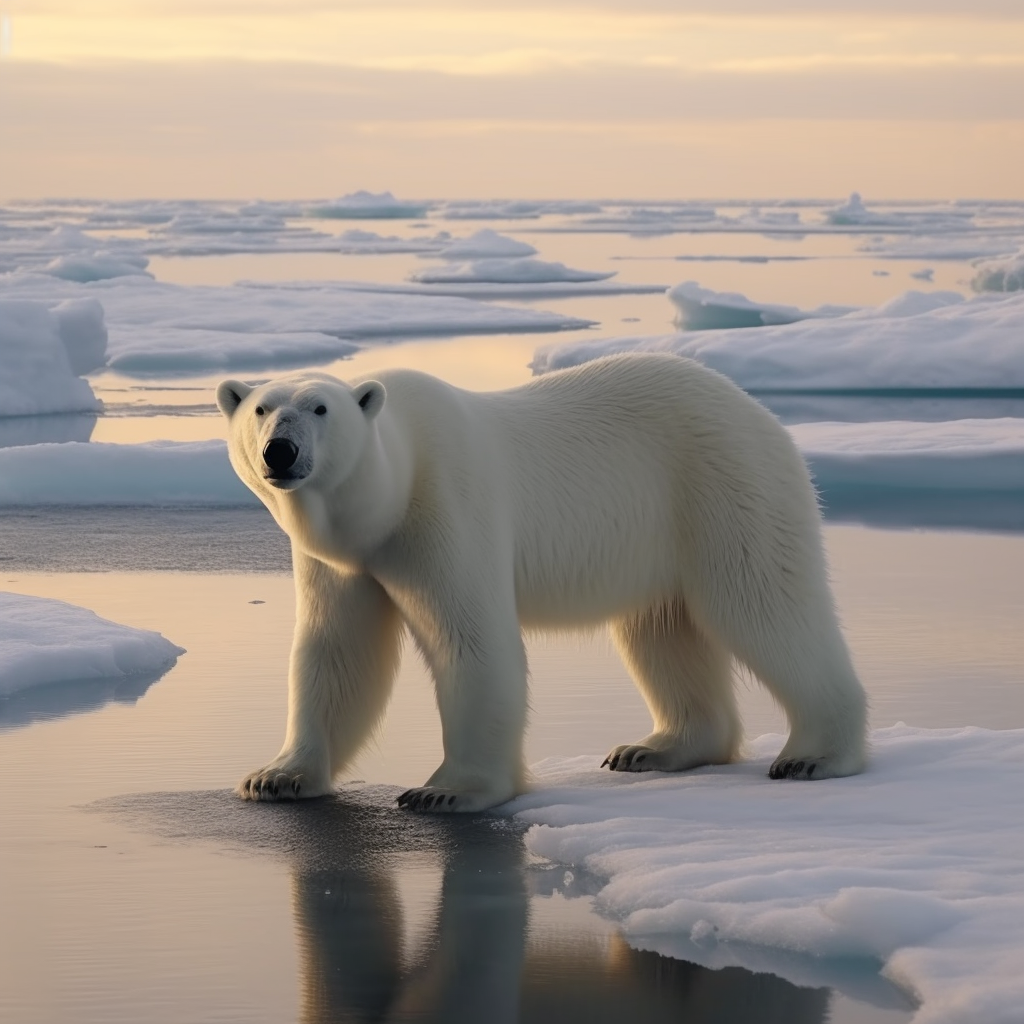February 14, 2024
Unraveling the Impact of Climate Change on Polar Bears in the Arctic
Book a Demo
In an era marked by the significant impact of climate change, a recent study has found startling revelations about the survival strategies of polar bears in the Arctic as they grapple with melting sea ice. The study deployed collar cameras on polar bears to closely monitor their behavior as they are increasingly forced to rely on land for sustenance.
The research tracked the diet, behavior, movement, daily energy expenditure, and body mass changes in 20 polar bears from western Hudson Bay in Manitoba, Canada. This monitoring was carried out during a three-week ice-free period from 2019 to 2022. The results shed light on the adaptive mechanisms polar bears are resorting to in order to survive.
Notably, the polar bears were found to have adopted various strategies to reduce energy loss during these ice-free periods. These included fasting, reducing movement, and altering their diets to consume berries and birds. A testament to the resilience of these magnificent creatures, these survival strategies are a direct response to the rapid loss of sea ice.
Despite these adaptations, the study found that the bears derived minimal benefit from foraging on land in terms of delaying starvation. In a significant revelation, 19 out of 20 bears were found to lose weight during the study period. This points to the worrying impact of climate change on polar bears, who despite resorting to a land-based diet during summer, are still losing weight due to the energy expenditure in foraging.
The researchers observed that 19 out of 20 polar bears lost an average of 47 pounds (21 kilograms), approximately 7% of their body mass, over three weeks. This dramatic loss of weight is a serious concern for the survival of the species.
Furthermore, the study revealed that the lack of sea ice in areas like Hudson Bay is keeping bears on land for three weeks longer than was typical in the 1980s. This raises serious concerns about their survival as sea ice continues to shrink due to climate change.
Given these alarming findings, the researchers recommend a significant reduction in greenhouse gas emissions as a means to ensure the survival of polar bears. With global warming-induced sea ice loss forcing these animals to adapt to a terrestrial lifestyle, strategies aimed at combating climate change are crucial to preserving this iconic Arctic species.
This study underscores the urgent need for action to mitigate climate change. As the polar bears struggle to adapt to their changing environment, their plight serves as a stark reminder of the impacts of global warming on the world’s biodiversity.
Science4Data is committed to cut through greenwashing and measure real impact. Join the journey to a sustainable future. Your actions matter.



